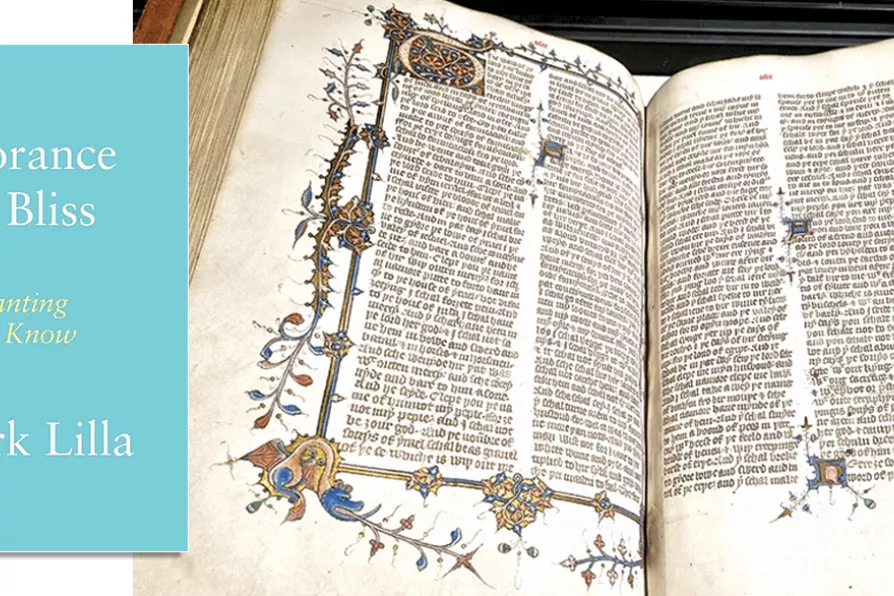JOHN GREEN, MARIA DUARTE and ANGUS REID review Fukushima: A Nuclear Nightmare, Man on the Run, If I Had Legs I’d Kick You, and Cold Storage

 KNOWLEDGE FOR ALL: Wycliffe's Bible in the British Library - Jorge Luis Borges mentions Wycliffite Bibles in his short story The Book of Sand, where he calls it the ‘Black-letter Wyclif,’ in reference to the Blackletter script used to write the publication
[Coldupnorth/CC]
KNOWLEDGE FOR ALL: Wycliffe's Bible in the British Library - Jorge Luis Borges mentions Wycliffite Bibles in his short story The Book of Sand, where he calls it the ‘Black-letter Wyclif,’ in reference to the Blackletter script used to write the publication
[Coldupnorth/CC]
Ignorance and Bliss – On Wanting Not To Know
Mark Lilla, Hurst, £18.99
MARK LILLA, Professor of Humanities at Columbia University, purports to investigate the contrary disposition to curiosity: the will not to know, the will to ignorance.
Certainly an interesting subject, but he treats it quintessentially as a disquisition from the ivory tower of academe. He takes us on a seemingly aimless ramble though the thickets of mythology, Biblical narratives and religious belief.
He begins by using the example of Oedipus, the most notorious case of someone whose ignorance determines their tragic fate, then races on through the mythological basis of fascism, to the role played by Christian fundamentalism in the historical self-narrative of the US, but in a very superficial way.

JOHN HAWKINS welcomes the passion, grief, precision and elegance of an eloquent witness of genocide












